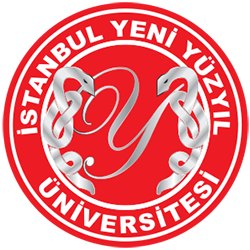| dc.contributor.author | Aydemir, Levent | |
| dc.contributor.author | Bireller, Elif Sinem | |
| dc.contributor.author | Avci, Hakan | |
| dc.contributor.author | Metin, Zeynep Boy | |
| dc.contributor.author | Deger, Kemal | |
| dc.contributor.author | Unur, Meral | |
| dc.contributor.author | Cakmakoglu, Bedia | |
| dc.date.accessioned | 2021-12-21T08:46:10Z | |
| dc.date.available | 2021-12-21T08:46:10Z | |
| dc.date.issued | 2017 | |
| dc.identifier.issn | 1015-2008 | |
| dc.identifier.issn | 1423-0291 | |
| dc.identifier.uri | https://doi.org/10.1159/000466702 | |
| dc.identifier.uri | http://dspace.yeniyuzyil.edu.tr:8080/xmlui/handle/20.500.12629/1919 | |
| dc.description.abstract | Background: Oral squamous cell carcinoma (OSCC) is one of the most widespread cancer types that arise from different sites of oral cavity and has a 5-year survival rate. This study is aimed at investigating the human oxoguanine glycosylase 1 (hOGG1)-Ser32 | |
| dc.description.sponsorship | Scientific Research Projects Coordination Unit of Istanbul UniversityIstanbul University [42830] | |
| dc.language.iso | English | |
| dc.publisher | Karger | |
| dc.rights | Bronze | |
| dc.title | Is Human Oxoguanine Glycosylase 1 Genetic Variant Successful Even on Oral Squamous Cell Carcinoma? | |
| dc.type | Article | |
| dc.relation.journal | Pathobıology | |
| dc.identifier.issue | 4 | |
| dc.identifier.startpage | 223 | |
| dc.identifier.endpage | 228 | |
| dc.identifier.volume | 84 | |
| dc.identifier.doi | 10.1159/000466702 | |
| dc.relation.issue | 4 | |
| dc.relation.volume | 84 | |














